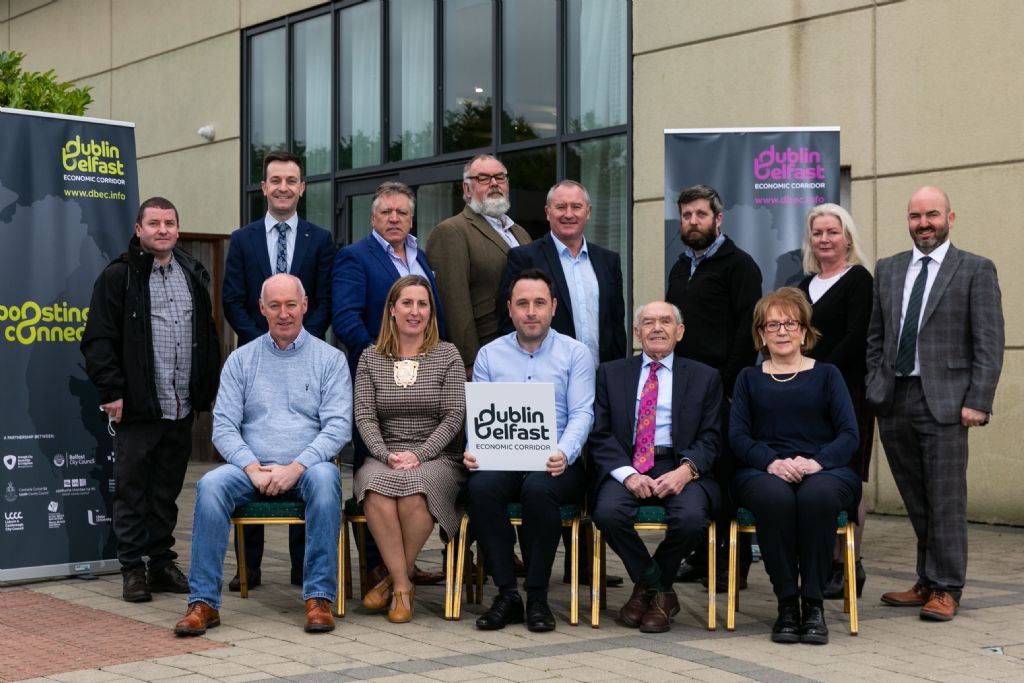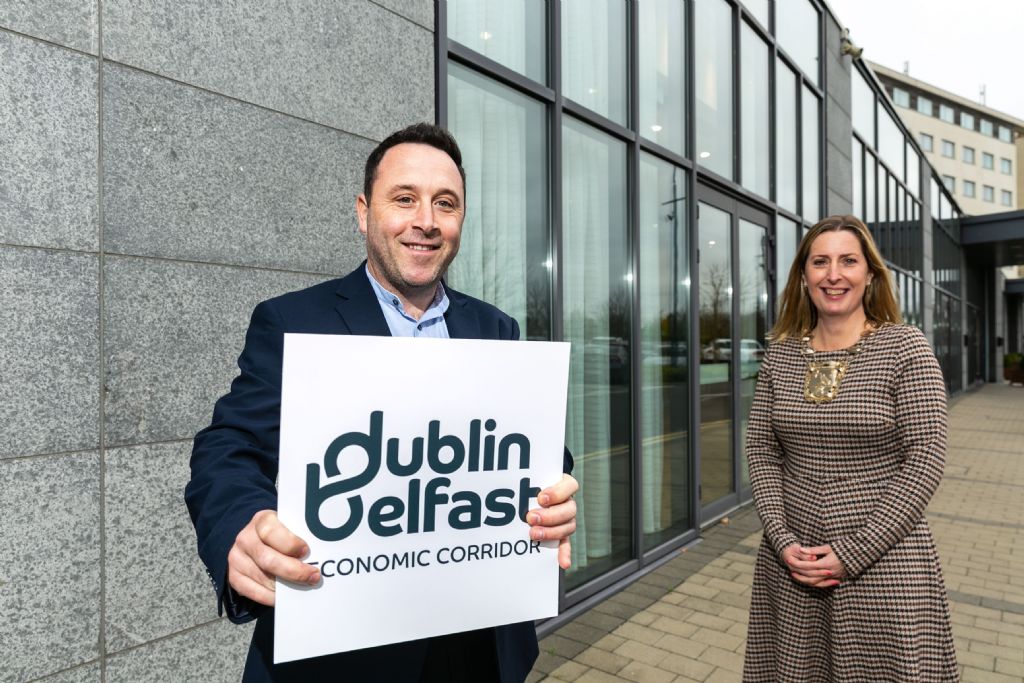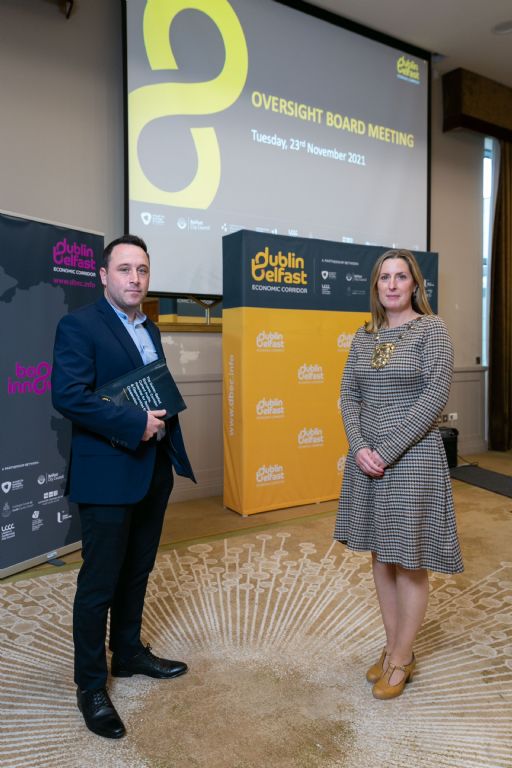Push to Boost Economy Between Dublin and Belfast Gains Momentum
A new cross-border partnership established to foster economic growth along the key strategic route between Dublin and Belfast has today announced its inaugural political leadership team who will help drive employment opportunities, address barriers impacting trade and encourage the delivery of better transport infrastructure.
Councillor Pete Byrne from Newry, Mourne and Down District Council was elected as Chair of the Dublin Belfast Economic Corridor (DBEC) Oversight Board, a body made up of councillors from the eight local authorities along the corridor. Cllr Seána Ó Rodaigh of Fingal County Council in Ireland was named Deputy Chair.
Welcoming the appointments, Newry, Mourne and Down District Council Chairperson, Councillor Cathy Mason said, “Newry, Mourne and Down District Council is delighted to have the opportunity to Chair the Dublin Belfast Economic Corridor Oversight Board; our district is strategically located at a mid-way point on the Dublin to Belfast corridor, which presents key opportunities to attract and secure cross border investment. By working with our cross-border partners, we can collectively stimulate further opportunities to drive forward our ambitions of delivering inclusive investment and growth across Newry, Mourne and Down and boost connectivity, enable innovation, generate jobs and foster greater socio-economic growth along the entire corridor.”
Addressing the Oversight Board’s meeting in County Meath, new Chair Councillor Pete Byrne said, “We have a real opportunity through the work of DBEC to deliver jobs and sustainable growth along what is a major economic pipeline for the whole of the island. There is a rich and diverse range of sectors and a large number of businesses which we can help to grow, be it in Agri-Food, financial services, tourism, high tech manufacturing or construction.
“Importantly, as a joint partnership this will go beyond focussing on the big cities which bookend the corridor and allow us to tackle regional disparities head on by leveraging the existing local government network and resources of the participating partners, as well as encouraging buy-in and engagement from the private sector.”
Deputy Chair of DBEC, Councillor Seána Ó Rodaigh said, “Alongside the obvious social and economic benefits of closer cross border collaboration in order to develop the corridor, what we are looking to help drive is greater inward investment, the boosting of trade opportunities for local businesses, increased production in key sectors and higher employment. This will be increasingly important as the population along the corridor continues to grow.”
As part of their efforts to develop a regional proposition for economic growth, DBEC has engaged leading consultants KPMG. It will undertake work which will help deliver a development plan to identify priority areas of cooperation between the councils and what DBEC could look to do to encourage greater economic regeneration across the corridor area.
Launched earlier this year, the DBEC partnership has members coming from four councils on either side of the border. There are 24 councillors who sit on the Oversight Board, three each coming from the eight councils involved: Armagh City, Banbridge and Craigavon Borough Council; Belfast City Council; Dublin City Council; Fingal County Council; Lisburn and Castlereagh City Council; Louth County Council; Meath County Council; and Newry, Mourne and Down District Council.
The partnership also includes Dublin City University and Ulster University who collaborated to produce the report that led to the formation of the group in March of this year.
Currently there are some two million people living in the eight council areas that the economic corridor passes through. However, its population is expected to grow faster than elsewhere across the island of Ireland. Predictions are that the total population will reach 2.5 million by 2040, bringing with it a younger and more diverse concentration of people.
Back











